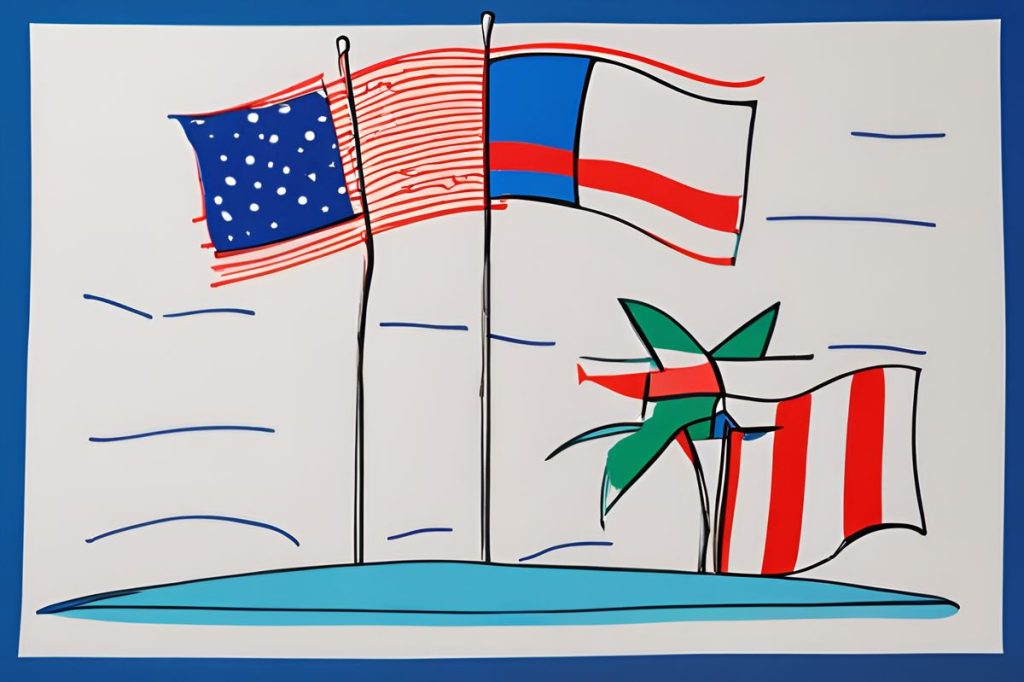At the UN General Assembly in New York, Turkish President Recep Tayyip Erdogan declared that the federal model for Cyprus is outdated, urging the world to recognize the Turkish Republic of Northern Cyprus as an independent state. He emphasized the presence of two distinct peoples on the island and reiterated Turkey’s claim to maritime rights in the Eastern Mediterranean, marking a notable shift in the dialogue surrounding this longstanding conflict.
What was Erdogan’s significant statement about Cyprus at the UN General Assembly?
During the UN General Assembly, Turkish President Erdogan stated that the federal model for Cyprus is obsolete, advocating for recognition of two separate states on the island. He called for international acknowledgment of the Turkish Republic of Northern Cyprus and emphasized Turkey’s role in regional maritime rights.
Erdogan’s Address to the UN
During the United Nations General Assembly in New York, Turkish President Recep Tayyip Erdogan made a significant statement regarding the ongoing Cyprus issue. Erdogan expressed his belief that the federal model proposed as a solution for Cyprus is no longer valid. As the third speaker at the event, he emphasized the presence of “two separate states and two separate peoples on the island,” highlighting the distinct status and rights of Turkish Cypriots. Erdogan’s assertion points to a significant shift in the approach to resolving the longstanding division of the island.
Erdogan voiced a call to action directed at the international community, urging recognition of the Turkish Republic of Northern Cyprus as an independent entity. This request is not new; it echoes a similar appeal from the previous year, demonstrating Turkey’s consistent stance on this matter. Erdogan’s call for an end to the isolation of Turkish Cypriots underscores the complexities and geopolitical sensitivities surrounding the Cyprus problem.
The Cyprus Conflict and Turkey’s Invasion
The island of Cyprus has been marred by conflict and division since Turkey’s military intervention in 1974, which followed a coup d’etat by supporters of union with Greece. According to Erdogan, this intervention has led to an era of “peace and tranquillity” on the island, a perspective that highlights Turkey’s role in the region. Erdogan praised the Turkish Cypriots and Turkey for their ongoing efforts towards a “just, permanent, and sustainable solution” to the Cyprus issue, despite the lack of an internationally recognized resolution.
In his address, Erdogan also touched upon Turkey’s maritime rights in the Eastern Mediterranean. He stated Turkey’s undeniable role given its extensive coastline and claimed rights to continental shelves north and west of Cyprus. The complexities of maritime boundaries in this region are a source of ongoing contention, particularly concerning natural resources.
Diplomatic Engagements
Following his address to the General Assembly, Erdogan had scheduled meetings with key figures, including UN Secretary-General Antonio Guterres and Greek Prime Minister Kyriakos Mitsotakis. These discussions were anticipated to further delve into the topics raised at the General Assembly, potentially paving the way for future diplomatic conversations regarding the Cyprus issue.
The international community awaited responses from other stakeholders in the Cyprus dispute, with scheduled addresses from President Nikos Christodoulides of Cyprus and other influential politicians. These speeches were expected to provide additional perspectives on the ongoing debate about the island’s future.
Regional Implications of the Cyprus Issue
The question of Cyprus’s future remains a contentious point of international diplomacy. Erdogan’s remarks at the United Nations General Assembly reflect a hardline stance that seeks to redefine the conversation around the island’s status. The potential recognition of the Turkish Republic of Northern Cyprus and the assertion of maritime rights by Turkey and Turkish Cypriots introduce complex dynamics to the already challenging Eastern Mediterranean geopolitics.
Erdogan’s speech at the UN underscores the importance of re-evaluating the approach to resolving the Cyprus problem as the realities on the ground evolve. The interplay between historical claims, international law, and regional politics will continue to influence the discourse around Cyprus and shape the actions of the involved stakeholders in the foreseeable future.
“`markdown
What did Erdogan declare about the federal model in Cyprus during the UN General Assembly?
Erdogan declared that the federal model for Cyprus is outdated and advocated for the recognition of two separate states on the island, emphasizing the existence of distinct peoples. He called for the international acknowledgment of the Turkish Republic of Northern Cyprus as an independent entity, marking a significant shift in the ongoing dialogue about the Cyprus conflict.
How did Erdogan describe the situation in Cyprus since Turkey’s military intervention in 1974?
Erdogan described the aftermath of Turkey’s military intervention in 1974 as an era of “peace and tranquillity” on the island. He praised the Turkish Cypriots and Turkey for their efforts toward achieving a “just, permanent, and sustainable solution” to the Cyprus issue, although he acknowledged the lack of an internationally recognized resolution.
What are Turkey’s claims regarding maritime rights in the Eastern Mediterranean?
In his address, Erdogan asserted Turkey’s undeniable maritime rights in the Eastern Mediterranean, citing its extensive coastline and claiming rights to the continental shelves north and west of Cyprus. This assertion highlights ongoing tensions surrounding maritime boundaries and natural resources in the region, further complicating the geopolitical dynamics at play.
What diplomatic engagements followed Erdogan’s address at the UN General Assembly?
Following his speech at the General Assembly, Erdogan scheduled meetings with key figures, including UN Secretary-General Antonio Guterres and Greek Prime Minister Kyriakos Mitsotakis. These discussions were anticipated to further explore the topics raised in his address, potentially facilitating future diplomatic conversations regarding the ongoing Cyprus dispute.
“`

